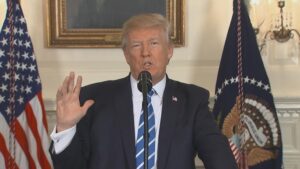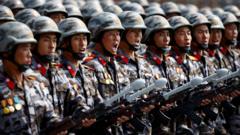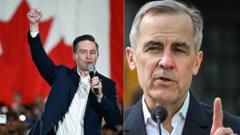German Defense Minister Boris Pistorius has emphasized that Ukraine should resist a proposed U.S. deal that demands significant territorial concessions to achieve a ceasefire with Russia. He argues that such agreements equate to capitulation.
German Defense Minister Urges Caution Against Territorial Concessions in Ukraine-Russia Negotiations

German Defense Minister Urges Caution Against Territorial Concessions in Ukraine-Russia Negotiations
Boris Pistorius warns Ukraine not to accept sweeping territorial deals as part of a ceasefire agreement with Russia.
Germany's Defense Minister, Boris Pistorius, has voiced strong concerns regarding Ukraine's potential acceptance of extensive territorial concessions in exchange for a ceasefire with Russia. Speaking to German public broadcaster ARD, Pistorius advised that Ukraine "should not go as far as the latest proposal by the American president," which could lead to a painful surrender of significant territories, including Crimea.
The U.S. President, Donald Trump, remarked recently that "most of the major points [of the deal] are agreed to," which has raised alarms in Kyiv. President Volodymyr Zelensky has consistently maintained that discussions regarding territorial issues should only occur once a ceasefire is firmly established, reiterating his stance against any land concessions.
Pistorius highlighted that while Ukraine might face the reality of yielding some territory to secure a ceasefire, the current U.S. proposal resembles capitulation. He pointed out that terms included in the negotiation could have been agreed upon over a year ago, suggesting that no meaningful progress is being made through the latest proposals.
The details of the U.S. plan remain elusive; however, reports indicate that it includes formal recognition of Russia's annexation of Crimea and acknowledges Russian control over other regions, such as Luhansk. In contrast, European stakeholders and Ukraine propose that territorial discussions should follow a ceasefire on the ground.
Further complicating matters, the U.S. plan appears to exclude Ukraine from NATO membership and introduces alternative security guarantees led by the UK and France. Additionally, it includes a controversial proposition to shift control of the Zaporizhzhia nuclear plant to U.S. oversight, with the expectation of shared electricity supply to both Ukraine and Russia.
In a recent interview, Trump attributed the war's initiation to Ukraine's aspirations to join NATO, stating, "Crimea will stay with Russia." On the diplomatic front, U.S. Secretary of State Marco Rubio emphasized the urgency of securing a peace agreement between the conflicting nations, warning that ongoing delays could jeopardize U.S. support in future negotiations.
With Russia maintaining control over approximately 20% of Ukrainian territory since its invasion in 2022, the prospect of peace remains uncertain as international stakeholders push for a resolution amid complex negotiations.



















